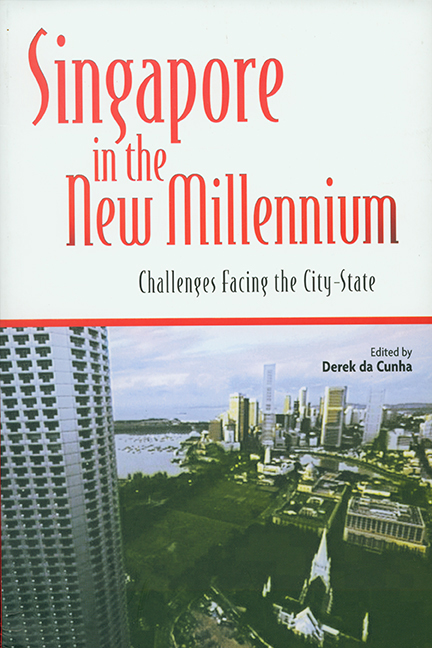Book contents
- Frontmatter
- Contents
- Preface
- Contributors
- 1 The Limits of a City-state: Or Are There?
- 2 External Challenges Facing the Economy
- 3 Governance: Its Complexity and Evolution
- 4 The Future of Civil Society: What Next?
- 5 Relating to the World: Images, Metaphors, and Analogies
- 6 Relating to the World: Images, Metaphors, and Analogies
- 7 Education in the Early 21st Century: Challenges and Dilemmas
- 8 Reframing Modernity: The Challenge of Remaking Singapore
- 9 National Identity, the Arts, and the Global City
- 10 The Media and the Flow of Information
- 11 Conclusion
- Index
7 - Education in the Early 21st Century: Challenges and Dilemmas
Published online by Cambridge University Press: 21 October 2015
- Frontmatter
- Contents
- Preface
- Contributors
- 1 The Limits of a City-state: Or Are There?
- 2 External Challenges Facing the Economy
- 3 Governance: Its Complexity and Evolution
- 4 The Future of Civil Society: What Next?
- 5 Relating to the World: Images, Metaphors, and Analogies
- 6 Relating to the World: Images, Metaphors, and Analogies
- 7 Education in the Early 21st Century: Challenges and Dilemmas
- 8 Reframing Modernity: The Challenge of Remaking Singapore
- 9 National Identity, the Arts, and the Global City
- 10 The Media and the Flow of Information
- 11 Conclusion
- Index
Summary
The turn of the millennium appears to be an exciting time for Singapore. There is constant talk of the need to re-examine old ways of thinking and doing things, and of the concomitant need for creativity and innovation. The Singapore 21document is a key example of this government-initiated push for change. Education policy has been a prime instrument for the fostering of both economic development and social cohesion ever since the ruling People's Action Party (PAP) came to power in 1959. It is, therefore, unsurprising that education policy-makers, schools, principals, teachers, and students are being swept along in a literal tide of newly launched policy directives.
This chapter poses questions about ongoing and future challenges and dilemmas facing Singapore's education system, as it moves into the twenty-first century. It is divided into two major sections. The first section focuses on the ways in which schools are being urged to foster creativity and innovation, in order to enhance national economic competitiveness in the global economy. t examines several key policy initiatives such as “Thinking Schools, Learning Nation”, the “Masterplan for Information Technology in Education”, and the revised university admission criteria. It draws from relevant research literature and raises troubling and thought-provoking questions about the launching of these initiatives. It argues that attention to the technical aspects of policy implementation is insufficient to ensure successful implementation in schools. Rather, greater attention needs to be focused on the human aspects, such as teachers' beliefs about knowledge and their role as teachers. At the same time, questions are raised about the move towards the marketization of education, as manifested, for instance, in the independent schools scheme, the autonomous schools scheme, and the push for intense inter-school competition. The second section looks at social cohesion and points out the persistence of policy challenges and dilemmas with regard to language and values education, ethnic disparities in educational attainment, and social class disparities in educational attainment. The chapter concludes by summarizing several key challenges and dilemmas in education policy-making in the early years of the twenty-first century.
- Type
- Chapter
- Information
- Singapore in the New MillenniumChallenges Facing the City-State, pp. 154 - 186Publisher: ISEAS–Yusof Ishak InstitutePrint publication year: 2002



